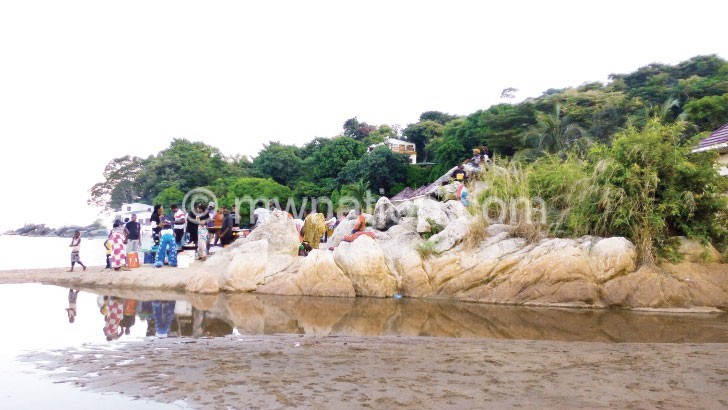Where local tourists count
In Nkhata Bay, every weekend is a carnival on the golden beach of Lake Malawi.
By Friday afternoon, there is a mad rush on the 50-kilometre rutted tarmac that connects the bay clustered on the shoreline with the leafy city of Mzuzu on Viphya Plateau. Interestingly, the traffic to the free-for-all foreground of CBR Nkhukuti Resort mostly comprises Malawians from Nkhata Bay and surrounding districts.
“The lake is ours. If we don’t patronise it, why should we expect others to do so?” says one of the visitors in the hive of activity.
This mirrors a feeling of over 200 impassioned pilgrims to the continent’s third-largest freshwater lake.

In the crowd, eye-catchers flash past: swimmers plunge into the lake; sun-worshipers bask on tidy sands and rocks; the thirsty ones empty bottles; the hungry munch fresh fish and barbeque the locals roast on the beach. Lovebirds chat up all over the place. Those who cannot stand the heat perch under summer huts.
For travellers with cameras and swanky phones, the vista is a gift that keeps giving.
But to some, it is not just an escape—but a protest to tourist destinations that silently exclude the locals in preference for visitors from overseas. Lately, the cliffy panorama along the lake has birthed a booming number of hospitality facilities.
However, some of them have come under criticism for using excessive prices and inavaibility of rooms to scare away the locals.
At Chikale, the long-established tradition of opening gates for all has made the perfectly situated beach with magnificent scenery on all sides a darling for many.
Director of Tourism Isaac Katopola says: “The weekend traffic to Chikale is very encouraging. At the Department of Tourism, we have a slogan: Tiziyamba ndife Amalawi. We are developing a domestic tourism policy to ensure more and more Malawians embrace the culture of travelling and patronising the tourist destinations. We cannot talk about tourism business if we leave it to international tourists from abroad.”
He urges tourism business to make the most of the lakeside hotspots by staging special events during weekends and national holidays.
“Let us give people a reason to visit them every week. Adventure-seekers should not wait for annual leave to go to the lake and other tourist destination. They can afford one weekend special per month and more events on Christmas, Easter, Mothers’ Day and other holidays,” says Katopola.
Usually, Chikale hosts music and traditional dance performances. During Easter, musician-cum-politician Billy Kaunda thrilled his fans when he ended a lengthy hiatus to perform alongside young urban artists.
In an interview, the former Deputy Minister of Tourism and Culture said: “There cannot be a better place for this reunion with my fans than this vast scenic spot with unrivalled views of the lake and happy people. We need more of these activities to promote our tourism destinations.”
On the open beach, it is not peculiar to see patrons bringing in their own drinks and bites.
“We are trying to control the setback, but Chikale Beach is not a private beach,”says CBR Tours, Travel and Resorts marketing executive Khumbo Mhone, explaining: “At Nkhukuti, we don’t want to block anybody. We want to have different people coming. We want to cater for everyone.”
But ‘nothing ventured, nothing gained’ is a familiar business saying.
For opening the gates wide to all, Nkhukuti management envisage making a small profit from a big crowd.
“Ours is a Malawian brand, a family business. We don’t want to exclude people. We want to grow the economy inside out by getting people to come and spend their money on quality services and goods we offer. Not many patrons leave our place without spending,” Mhone says.
CBR is owned by the family of lawyer Ralph Mhone, who is also Nkhata Bay Central member of Parliament. However, the open-door approach has been in practice since Nkhukuti’s onset over a decade ago.
The main winners include locals, who vend fish, carvings, paintings, beach wear and other merchandise as they mingle with visitors.
However, the influx offers a vibrant market for sex workers. Parents, together with welfare officials, are worried that girls as young as 13 are being lured into risky sexual transactions by well-off visitors.
However, the risky sex web, which fuel HIV infections in tourism zones, is an aside of a tale of hundreds of Malawians making a stunning tourist destination tick all year round. n





